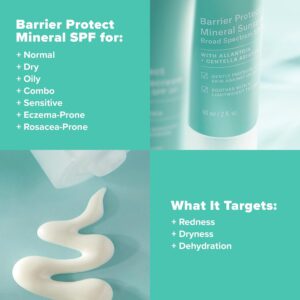Shea butter, derived from the nuts of the African shea tree, has been a cherished natural skincare ingredient for centuries. Packed with essential nutrients and healing properties, it offers a wide range of benefits that help maintain and improve skin health.
1. Deep Hydration:
Shea butter is an excellent natural moisturizer. Its high concentration of fatty acids, such as oleic, stearic, and linoleic acids, helps to lock in moisture, preventing dryness and flakiness. It creates a protective barrier on the skin, ensuring hydration is retained, leaving your skin soft, supple, and smooth.
2. Anti Inflammatory Properties:
Rich in compounds like cinnamic acid, shea butter exhibits anti inflammatory effects that help soothe irritated or inflamed skin. It’s particularly effective for conditions like eczema, psoriasis, and rosacea, reducing redness, swelling, and discomfort.
3. Nourishment and Repair:
Shea butter is loaded with vitamins A, E, and F, which are essential for skin health. Vitamin A promotes cellular turnover, helping to repair damaged skin, fade scars, and reduce wrinkles. Vitamin E offers antioxidant protection, shielding the skin from harmful free radicals that cause premature aging.
4. Sun Protection:
While not a substitute for sunscreen, shea butter contains a small amount of SPF, offering some protection against UV rays. It also helps repair sun damaged skin, reducing peeling and dryness.
5. Natural Healing:
The emollient and soothing properties of shea butter accelerate the healing of cuts, scrapes, and minor burns. It can also be used to treat chapped lips, cracked heels, and dry cuticles.
Shea butter is a versatile, natural solution for maintaining radiant, healthy skin. Its deep hydration, healing capabilities, and anti aging properties make it a must have ingredient in any skincare routine.
The Skin-Boosting Benefits of Aloe Vera
Aloe vera, often referred to as the “plant of immortality,” has been celebrated for centuries for its remarkable benefits to skin health. This natural ingredient, rich in vitamins, minerals, and antioxidants, is a go to solution for a variety of skin concerns, thanks to its soothing, hydrating, and healing properties.
One of aloe vera’s primary benefits is its ability to hydrate the skin. Packed with water and essential nutrients, aloe vera acts as a natural humectant, drawing moisture into the skin and locking it in. This makes it an excellent remedy for dry, flaky skin or for maintaining the skin natural hydration barrier, leaving it soft, plump, and glowing.
Aloe vera is also a powerful healer for damaged or irritated skin. Its natural anti inflammatory and antimicrobial properties make it ideal for soothing sunburn, minor burns, and cuts. By accelerating collagen production and improving skin elasticity, aloe vera promotes faster wound healing and helps reduce the appearance of scars.
For acne prone skin, aloe vera offers a gentle yet effective solution. Its antibacterial properties help combat acne causing bacteria, while its ability to reduce redness and inflammation makes it effective for calming active breakouts. Plus, its lightweight texture doesn’t clog pores, making it suitable for oily and combination skin types.
Rich in antioxidants like vitamins C and E, aloe vera protects the skin from environmental stressors such as pollution and UV damage. This helps slow down premature aging, reducing the appearance of fine lines and wrinkles.
Whether used as a moisturizer, spot treatment, or soothing gel, aloe vera is a versatile skincare ingredient that caters to all skin types, leaving it nourished, rejuvenated, and healthier than ever.
The Benefits of Amaranth Oil for Skin Health
Amaranth oil, derived from the seeds of the amaranth plant, is a natural powerhouse when it comes to skincare. Packed with essential nutrients and bioactive compounds, this lightweight oil offers multiple benefits for maintaining healthy, radiant skin.
One of the key components of amaranth oil is squalene, a natural antioxidant and hydrating agent. Squalene mimics the skins natural oils, making it an excellent moisturizer for all skin types, especially for those with dry or sensitive skin. It penetrates deeply into the skin, improving elasticity, reducing fine lines, and promoting a plump, youthful appearance.
Amaranth oil is also rich in linoleic acid, a type of omega-6 fatty acid that helps maintain the skins barrier function. This strengthens the skins ability to retain moisture and shield against environmental aggressors like pollution and UV rays. For individuals with acne prone skin, linoleic acid helps reduce inflammation and unclog pores, leading to a clearer complexion.
Another standout feature of amaranth oil is its anti inflammatory and healing properties. The presence of vitamin E and other antioxidants in the oil aids in soothing irritated skin, reducing redness, and accelerating the healing of minor wounds or blemishes. Its especially beneficial for managing skin conditions like eczema and psoriasis.
Amaranth oil is versatile and lightweight, making it ideal for direct application or blending with other skincare products. Whether used as a moisturizer, serum, or in DIY masks, it provides deep nourishment, leaving your skin soft, smooth, and rejuvenated.
Incorporating amaranth oil into your skincare routine not only enhances hydration but also promotes overall skin health, helping you achieve a natural, radiant glow.
The Skin Transforming Benefits of Jojoba Oil
Jojoba oil, derived from the seeds of the jojoba plant, is a versatile, natural ingredient renowned for its numerous benefits for skin health. Unlike other oils, jojoba oil closely resembles the skins natural sebum, making it a perfect match for all skin types, including sensitive and acne prone skin.
One of jojoba oil most remarkable qualities is its ability to deeply moisturize the skin without clogging pores. As a non comedogenic oil, it forms a protective barrier that locks in moisture, keeping the skin hydrated and soft. Its lightweight texture absorbs quickly, leaving no greasy residue behind.
Jojoba oil is also rich in vitamins E and B-complex, which help repair and protect the skin from damage caused by environmental stressors like UV rays and pollution. These vitamins work to reduce redness, calm irritation, and improve the skin overall resilience.
For those struggling with acne, jojoba oil can help balance the skin natural oil production. By mimicking sebum, it signals the skin to produce less oil, preventing clogged pores and breakouts. Its anti-inflammatory and antibacterial properties also help soothe existing acne and reduce the appearance of blemishes.
Additionally, jojoba oil antioxidant content helps fight free radicals, slowing down signs of aging like fine lines and wrinkles. Its regenerative properties support collagen production, improving skin elasticity and promoting a youthful glow.
Whether used as a moisturizer, makeup remover, or added to serums and creams, jojoba oil is a powerhouse ingredient that enhances skin health. Regular use of jojoba oil leaves the skin nourished, balanced, and radiant, making it an essential addition to any skincare routine.






